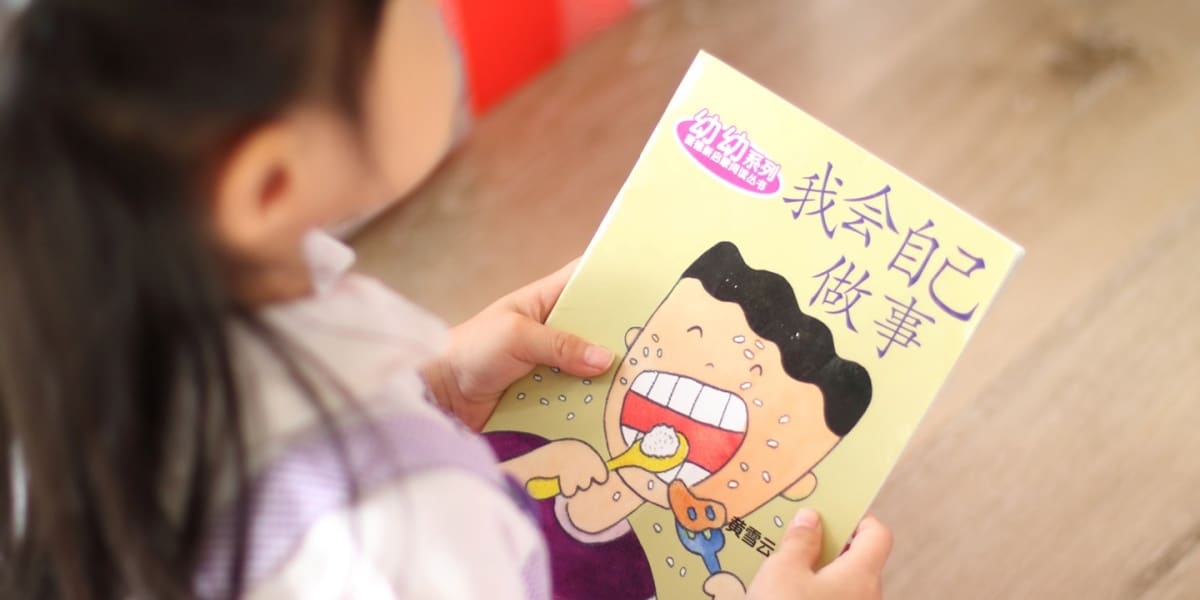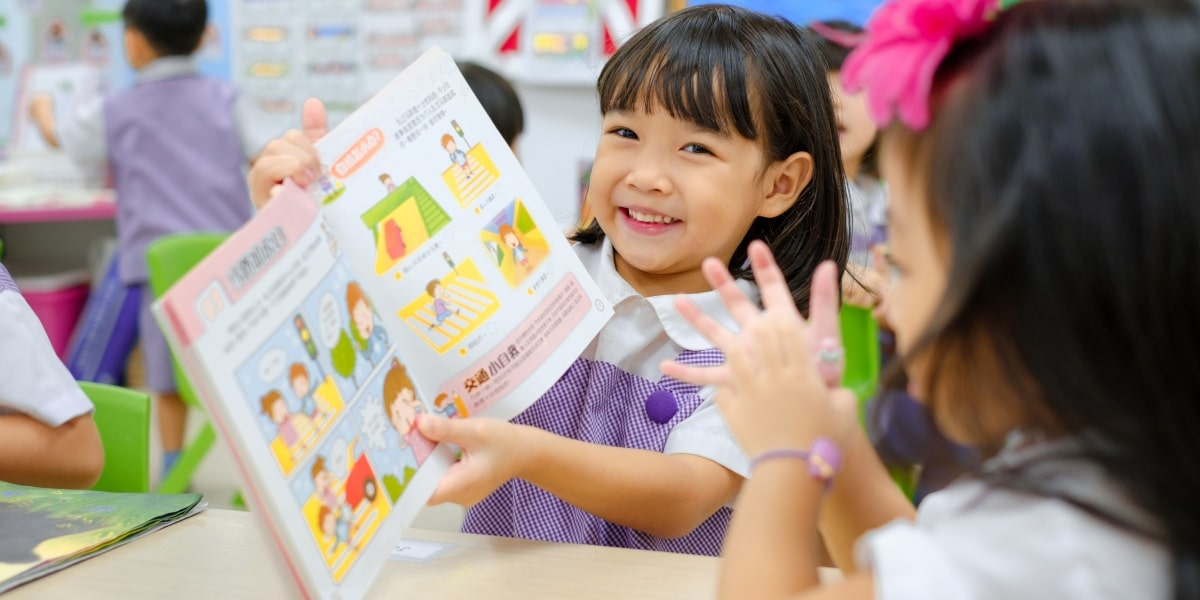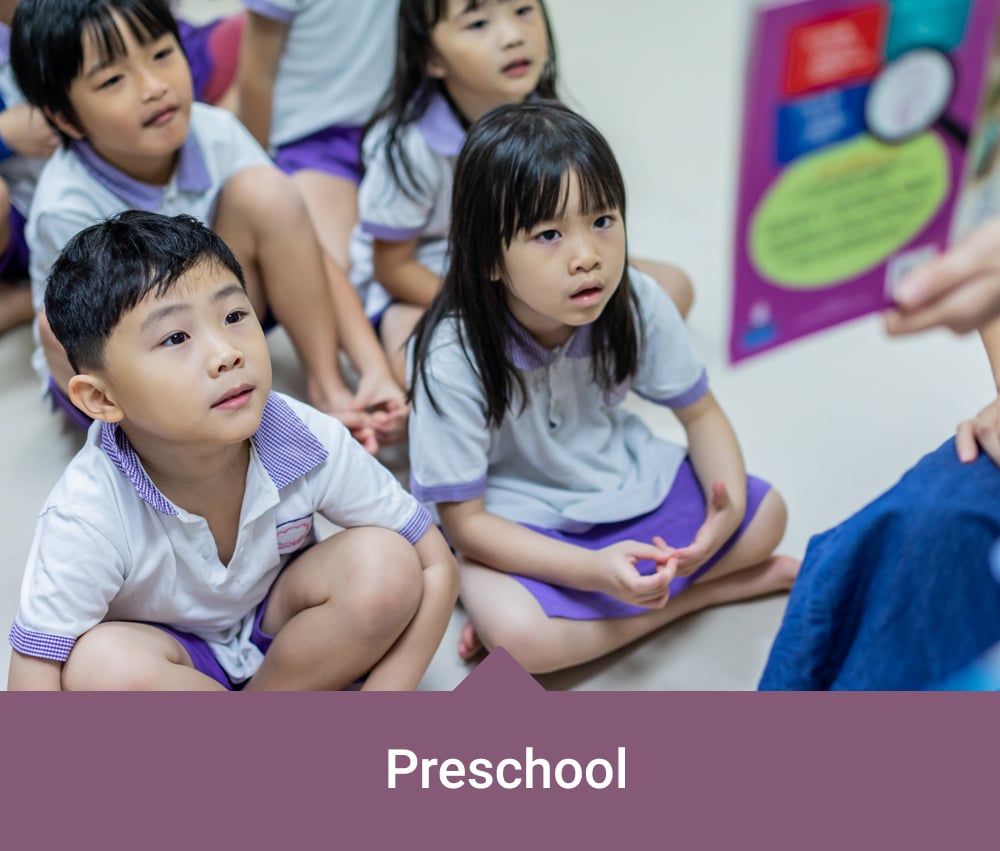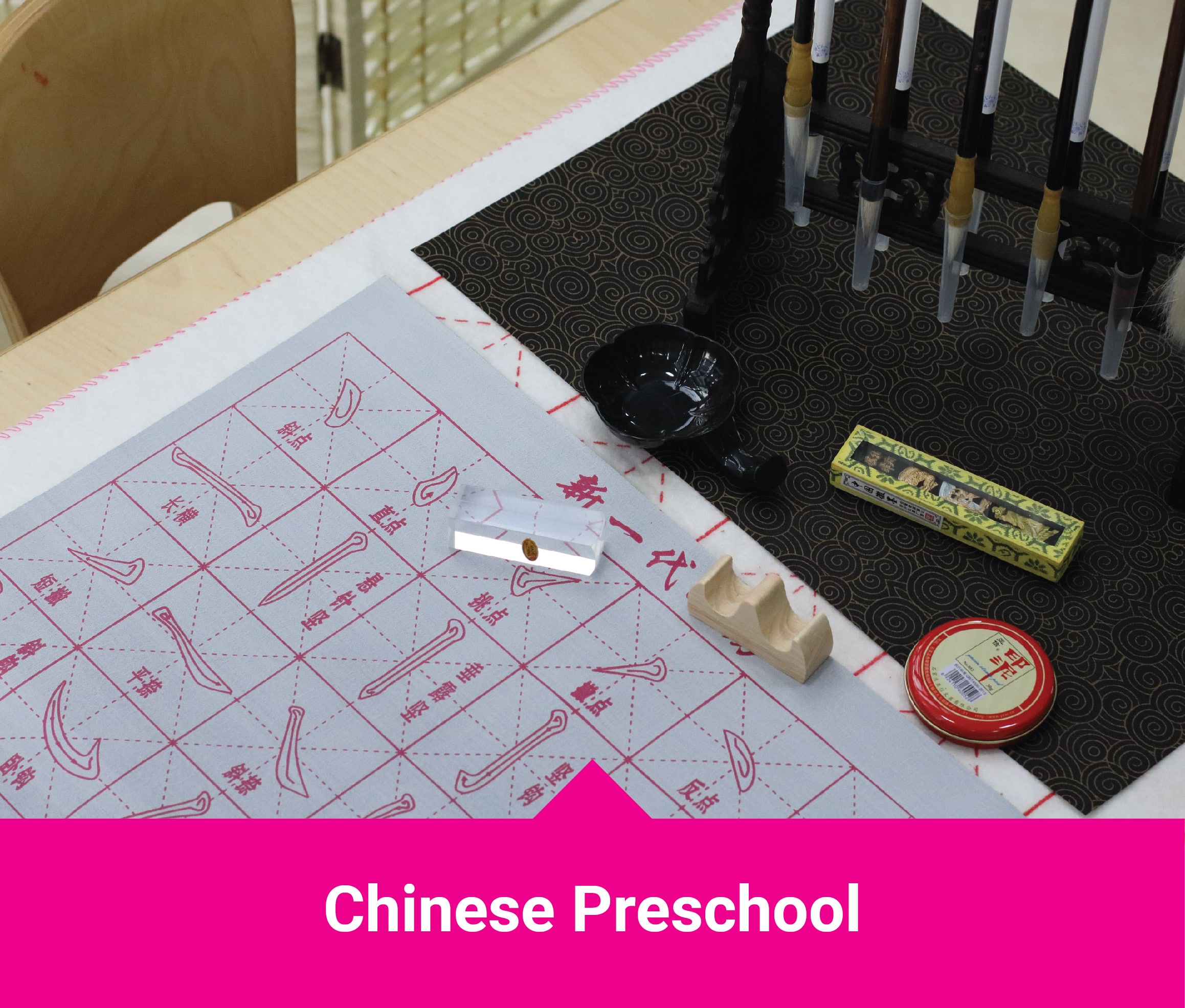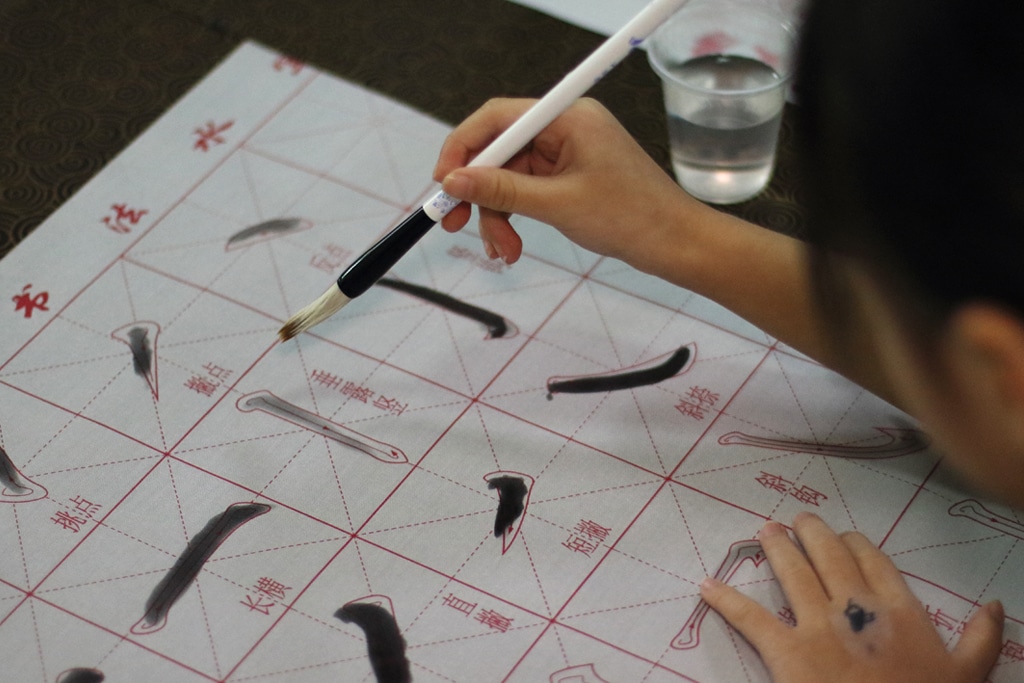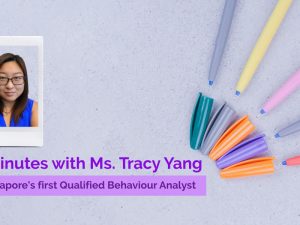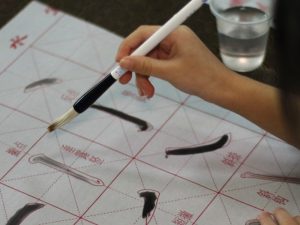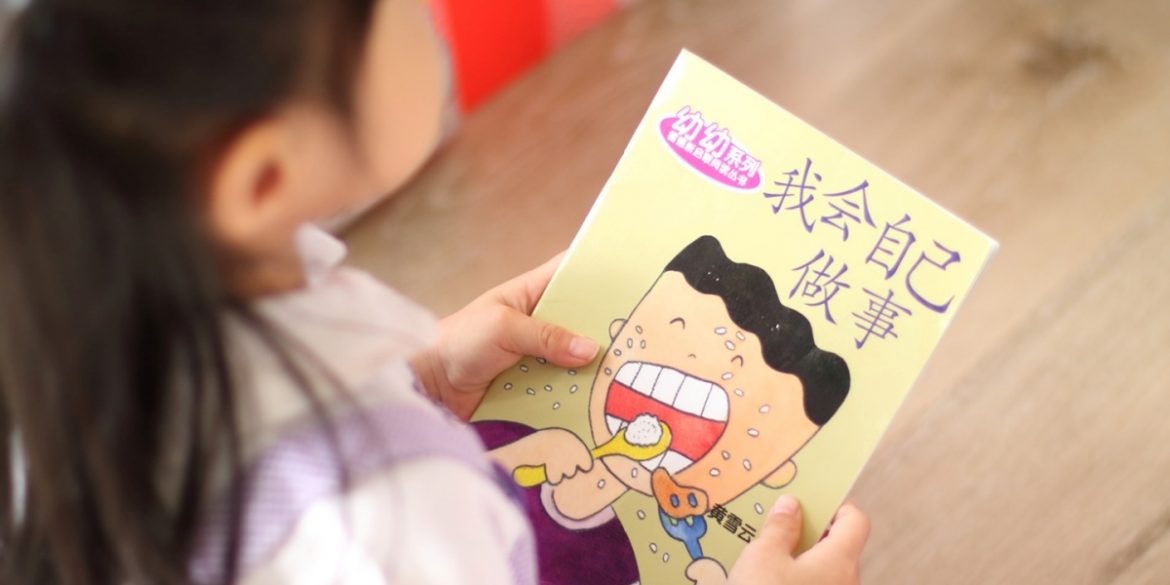
Bilingual children who are able to “code-switch” or toggle between two languages have been proven to use more cognitive resources and are found to outperform monolingual children on tasks that tap into executive capabilities, i.e. skills related to attention, reasoning, and flexible thinking. To nurture an effectively bilingual child, it is crucial to instil strong language fundamentals in their early formative years.
With English being the lingua franca in Singapore, it is the language many households predominantly communicate with one another. Some parents may also not be fluent enough in the Chinese language to teach their children. As such, Chinese-Immersion preschools are becoming increasingly popular among parents who are searching for ways to immerse children in a Chinese-rich environment.
While most preschools are bilingual and offer regular Chinese lessons, what are the benefits of Chinese Preschools and what makes it different? Let’s read on to find out!
The Importance of Chinese in the World Today
Did you know that Chinese is the most spoken language in the world today? As China’s economy and global profile continues to expand, it is increasingly crucial for your child to have a strong foundation in the Chinese language, so that he or she can succeed in the future world.
The Benefits of Learning Chinese
A research by the Graduate School of Education at Harvard University shows that learning multiple languages allows young children to have stronger cognitive skills.
Bilingual Preschools vs Chinese Preschools in Singapore
Bilingual Preschools in Singapore
Majority of Singapore’s preschools’ follow Singapore’s bilingual education system closely, to prepare children for formal education in Primary 1 (P1). In bilingual preschools, though English and Chinese teachers usually take turns to conduct classes, English is the main language of instruction.
At Mulberry Learning’s bilingual preschools, we go beyond that of just having Chinese lessons as an academic subject, but children also enjoy activities that cultivate an interest and love for the Chinese language and culture.
In Mulberry Learning’s Chinese MasterTM programme, preschoolers learn how to listen, read, speak, and write proficiently in the Chinese language under the tutelage of native Chinese teachers. Besides learning how to recognise different tonal sounds and character origins, the Confucian teachings of Di Zi Gui (弟子规) also cultivates positive moral values in the little ones.
Chinese Immersion Preschools in Singapore
The main difference between Bilingual and Chinese Preschools is that children will be immersed in a Chinese-rich environment where they will listen, speak, learn, sing, dance and interact with teachers and their peers in Chinese. The myriad of fun activities helps children learn about the amazing arts, literature, philosophy, and festivals of one of the oldest cultures in the world.
At Mulberry Learning, our structured and progressive proprietary Chinese immersion curriculum is crafted by educational experts with over 30 years of early childhood education. Children will be able to develop an expressive vocabulary of more than 4,200 Chinese words, familiarising themselves with and reciting more than 30 Chinese poems and over 80 idioms by the age of six.
Besides developing a strong foundation in the Chinese language and its culture, children will learn in a multi-disciplinary manner across subjects like Drama & Communication, Mathematics, Science, Music, and Art & Craft. The myriad of fun lessons and activities nurtures a child’s love for learning and transforms them into maestros of the Chinese language.
Our Awards
Will My Child’s English Language Abilities Suffer?
Yet, the question that many parents may have is that, are they supercharging their child’s Chinese language abilities? Will my child’s English language capabilities suffer?
The unique approach to Mulberry Learning’s Chinese Immersion preschool curriculum is that there will be a strong emphasis (80%) on Chinese in the early years, accompanied by a gradual increase in English as children arrive at their Kindergarten years. This ensures that children are nurtured to be effectively bilingual, primed for success in Primary School and beyond.
As the Chinese preschool programme is also integrated with Mulberry Learning’s award-winning iDevelop / iExplore / iExperience / iLearn curriculum model, parents can rest assured that signature programmes like Reggio-inspired Project InquiryTM, Habits of MindTM and Literacy FunTM are still included as part of the holistic learning that nurtures the Future Ready Child.
So, what now? Bilingual Preschools or Chinese Immersion Preschools?
Ultimately, there are other factors to consider when choosing a preschool for your child. Children in predominantly English-speaking households where parents may not have the capabilities to coach them in the language may want to look into a Chinese-Immersion preschool to get children up to speed in the language in their formative years. If you think about it, if both parents are speaking in English at home, children are kind of in an English-rich environment at home and will definitely benefit from a Chinese-Immersion Preschool curriculum.
However, some families may have grandparents who are able to converse and teach children the Chinese language may then find that a Bilingual Preschool is sufficient.
All in all, we can’t deny the fact that Chinese is becoming increasingly important in the world today and whichever preschool you choose, Mulberry Learning is here to assist you!
About Mulberry Learning
Established in 2006, Mulberry Learning is an award-winning Reggio-inspired preschool with 11 locations around Singapore. Mulberry Learning is the world’s first and only preschool network certified by the USA for the Habits of MindTM framework, and its curriculum has been voted as “Singapore’s Best Holistic Learning Programme” for 3 years running by leading parenting publications.
Exclusive Promotion
Be it a Bilingual or Chinese Preschool, find out how Mulberry Learning’s award-winning curriculum can help prepare your child for his or her Primary years and beyond! Explore our beautifully crafted Reggio-inspired learning spaces from the comfort of your own home with our Virtual School Tours. Register Your Interest and we will connect you with our participating Mulberry Learning Preschools.


